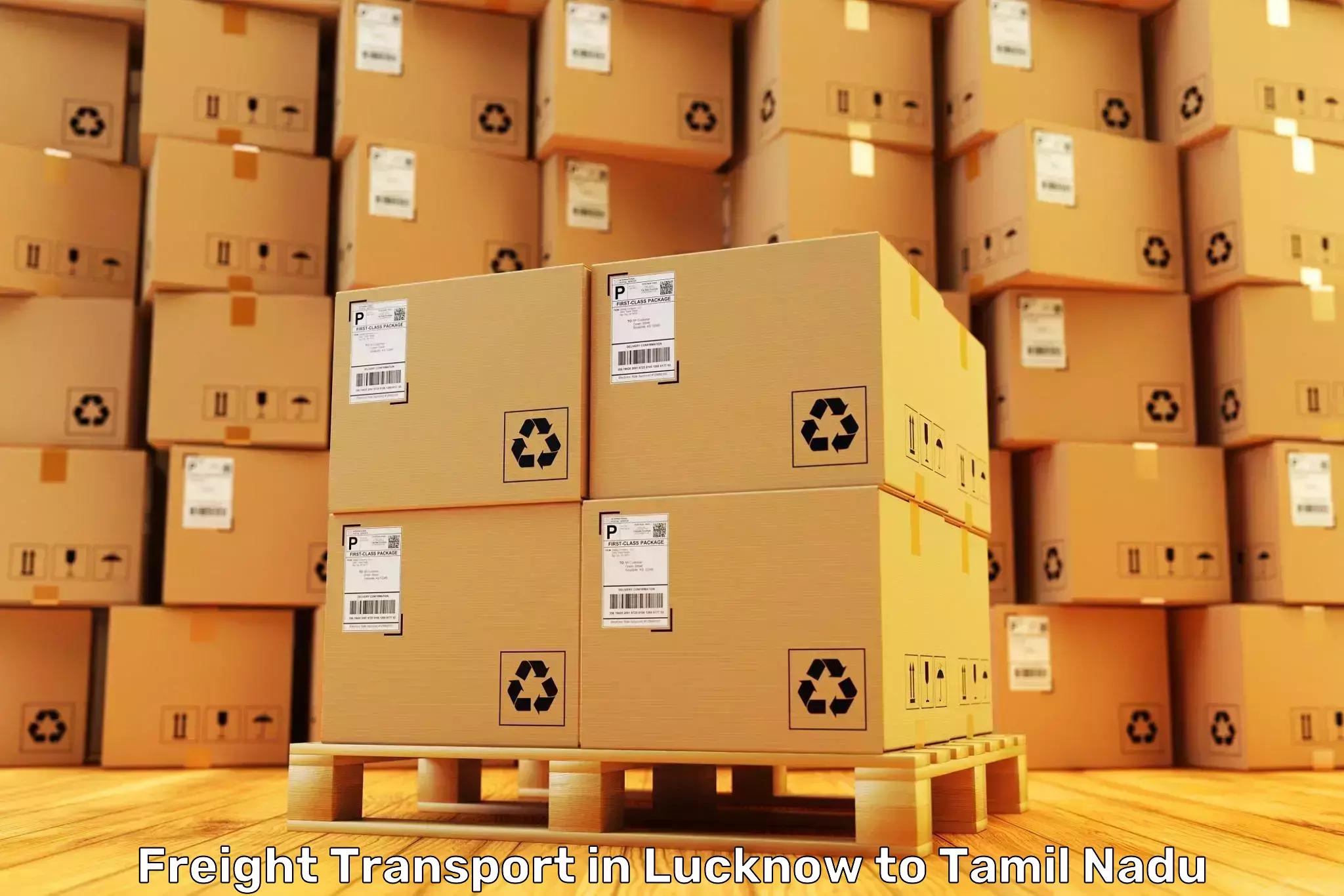
Expert logistics solutions in the heart of India! Book the best services without any hassle from Lucknow To Perungudi, over a call. You can book various services like Furniture transport solutions, Household Transport, Bulk cargo transport, Less than truckload shipping, Household Courier Service, etc
Lucknow To Perungudi Freight Transport Service Details
| Consolidation: | In Sharing with Other Shipment |
| Charges: | From ₹861 for Direct Pincode & ₹1861 for ODA Pincode |
| Nearby Cities: | Lucknow Freight Transport for Perur and Perundurai Freight Transport in Lucknow |
| Billing Weight: | As per weight, size, invoice value and pin codes. |
| Source City: | Lucknow |
| Services: | Advanced road freight solutions, National logistics services, Regional logistics services, Custom logistic projects, Quick goods services, High-speed package forwarding, Local logistics and shipment, Major freight services, Heavy transport operations, Fast cargo forwarding |
| Date: | April 29, 2024 (29-4-2024) |
| Destination State: | Tamil Nadu |
| Other Cities: | Freight Transport in Kanpur to Perungudi and Freight Transport in Jaipur to Perungudi |
| Delivery Type: | Door Delivery |
| Current Status: | Serviceable |
| Mode of Transport: | Road, Rail & Air |
| Source State: | Uttar Pradesh - UP |
| Destination City: | Perungudi |
| Area/Zone: | Lucknow Division |
| Source Geo Coordinates: | 26.8466937, 80.946166 - (NorthEast L: 26.9641146, 81.0544895, SouthWest L: 26.7332694, 80.830536) |
Multi-Regional Freight Transport: Efficient and Reliable Goods Transportation Services
Multi-regional freight transport refers to the transportation of goods across multiple regions or areas. It plays a crucial role in facilitating trade and ensuring the smooth flow of goods between different locations. With a well-established network, multi-regional freight transport services offer efficient and reliable solutions for businesses looking to distribute their products on a broader scale. These services utilize various modes of transportation, such as trucks, trains, ships, or airplanes, depending on the distance and specific requirements. By optimizing logistics processes and implementing advanced tracking technologies, multi-regional freight transport enables businesses to streamline their supply chains while reducing costs and improving overall efficiency.
Advanced Shipping Operations: Streamlining Logistics and Supply Chain Management
Advanced shipping operations refer to the sophisticated processes and technologies used to optimize logistics, transportation, and supply chain management in the delivery of goods. This involves leveraging advanced software systems, automation, real-time tracking, predictive analytics, and enhanced communication networks to ensure efficient movement of products from production facilities to end consumers. Advanced shipping operations enable businesses to minimize costs, reduce delivery times, enhance inventory management, improve customer satisfaction while meeting sustainability goals. By embracing cutting-edge solutions such as route optimization algorithms and warehouse robotics, organizations can achieve greater operational efficiency and competitive advantage in the marketplace.
Transport your goods efficiently with reliable industrial haulage services
Industrial haulage services provide transportation of heavy-duty machinery, large equipment and oversized items across long distances for various industries. These companies utilize specialized vehicles such as flatbeds, step decks and lowboys to transport the cargo safely and efficiently. The service providers have a team of experienced professionals who handle the loading, securing and unloading of the cargo ensuring safe delivery to its final destination. Industrial haulage services offer flexible scheduling options that cater to specific timelines required by clients, making them an ideal choice for time-sensitive deliveries. With their state-of-the-art technology and expertise in handling challenging logistics requirements, these companies promise hassle-free movement of goods at competitive prices.
Efficient Cargo Transport Networks: Definition and Importance
Cargo transport networks are the interconnected transportation systems that enable goods to be transported from one place to another. These networks comprise various modes of transportation, including road, rail, air and sea. Efficient cargo transport networks ensure smooth movement of freight across different regions and countries. They reduce transit times, provide end-to-end visibility into the shipment status, optimize resource utilization and enhance supply chain efficiency. A well-designed logistics network can help businesses deliver products to customers faster at lower costs while minimizing risks associated with product damage or loss in transit. Effective cargo management involves several factors such as route optimization, carrier selection based on cost effectiveness & reliability metrics and tracking mechanisms for real-time visibility into transported goods' location/status enabling quick decision making during unexpected situations like natural disasters or accidents etcetera thereby ensuring effective delivery of overall service quality that meets customer expectations while increasing business agility which can lead towards long term profitability through increased competitiveness in an ever-changing market scenario.
Efficient Road Transport Services: Enhancing Goods Transportation in India
Efficient road transport services play a crucial role in the smooth and timely delivery of goods across India. With the country's vast geographical expanse, well-organized transportation networks are essential for businesses to thrive. These services ensure that goods reach their destinations on time, minimizing delays and disruptions. Utilizing advanced technology solutions such as GPS tracking systems and optimization algorithms, efficient road transport services enable real-time monitoring of shipments to enhance efficiency and reduce costs. Additionally, by optimizing logistical processes like route planning and load allocation, these services maximize capacity utilization while minimizing fuel consumption and carbon emissions.